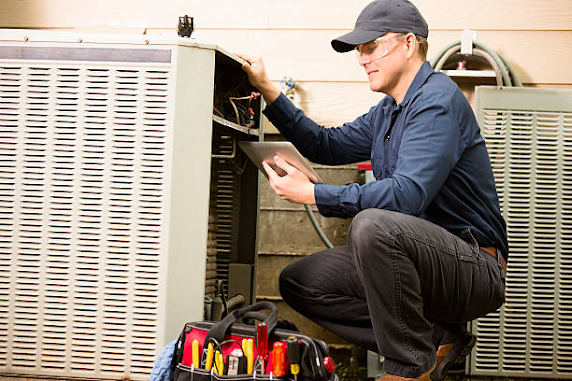What exactly does an electrical contractor do?
Someone unfamiliar with the field might wonder, “What does an electrical contractor accomplish that an electrician doesn’t?” There is some fuzziness when comparing an electrician’s work to that of an electrical contractor. This article will examine the distinctions between an electrician and an electrical contractor, the duties of an electrical contractor with a licence, and the significance of these professionals in the building and construction sector.
What does it mean to be an Electrical Contractor?
An electrical contractor is a business person or company that carries out specialist electrical building work. It is the most straightforward explanation of the term. This activity is usually associated with the electrical system’s planning, installation, and upkeep. It is not important what kind of electrical system they work on or with; instead, what is essential is their work. They are responsible for ensuring that the methods, as mentioned above, function efficiently, safely, and most of the time in a manner that benefits the environment. They are in charge of supplying power to our entire planet, and there are very few projects that won’t require the services of an electrical contractor to guarantee that everything functions well and that all safety criteria are satisfied.There are also many Emergency Electrician la palma Contractors who are giving their services in emergency cases.
What does an electrical contractor do?
Electricians In Orange County Ca can do a diverse range of activities depending on their area of expertise. When an electrical technician is hired for a job, it is the electrical contractor’s responsibility to initiate the position. The electrical contractor will often submit a plan with a higher level of detail. Alternatively, the electrical contractor may do both. It is an essential step before beginning construction. The electrical contractor will start building once they have an authorized design, budget, permit, and liability insurance coverage. Scheduling out the work and beginning construction are the next steps.
The electrical contractor will create a timetable for the work and begin construction once the client has accepted the design and budget. To better project management, the electrical contractor Orange County will frequently use specialized software.
During the project’s initial building and design phase, the electrical contractor will have a significant amount of work to do if the project is being delivered using the Integrated Labor Delivery delivery method. The advantage to both the project and the electrical contractor is enormous, and it has the potential to reduce the amount of rework or difficulties that arise while the building is being constructed.
Electrical Contractors Falling Into Several Categories
Repairing problems that arise with electrical activities fall under the purview of Orange County commercial electricians. The term “electrical contractor” can refer to either a firm or a business that employs qualified electricians to carry out a variety of electronic projects. Electrical work of all kinds, including installing new wire and its removal, and other electrical tasks, should only be performed by trained professionals. The contractors can inspect a project’s blueprints, wall plans, and floor plans. They will be able to understand the electrical requirements better and bid on multiple projects with the help of these plans.
Electrical contractors in laguna beach may be required to obtain training in various subfields depending on their work. Every professional can make use of its procedures and its regulations. The following is a list of familiar electrical contractors:
Electricians Specializing in Low Voltage
Electrical work, such as 600 VAC, falls under the purview of these contractors, who are responsible for dealing with it. Applications such as computers and telephones require a voltage known as nominal. These devices are necessary to transport analogue signals or data without disseminating raw electricity.
The most sought-after electrical contractors in this category specialize in installing alarm systems, telephone technicians, and computer networks. A few states need low-voltage contractors to have a licence to work legally. In certain other nations, these contractors must work under the supervision of a licenced electrical contractor.
Electrician Contractor
The contractors can carry out their responsibilities in commercial or residential settings. They are accountable for installing the electrical breaker box, the wiring of the outlets and switches, and the structure of the fixtures. They must work on the electrical interfaces and utility hook-ups for several technologies. They must receive a licence after passing a test and being qualified to carry out electric-related tasks. 24 Hour Electrician Orange County must report their work to a licenced electrical contractor to receive a certificate of completion from that individual following an inspection of their work.
Those Who Construct Plants
High voltage transmission lines between the facilities of an electric company are the responsibility of electrical contractors, who are responsible for their installation and maintenance. They are required to work on plans for the outer world. After obtaining their licence, they must complete rigorous and specific training for the various facilities they will work in. Electricians must have a significant amount of experience in addition to having received adequate education because the transmission of high voltage involves both complex and dangerous labor.
Electricians and Plumbers
Contractors specializing in HVAC (high voltage air conditioning) operate with different heating and cooling systems, including air conditioners and furnaces, in both commercial and residential settings. Because of its proximity to high voltages and high levels of moisture or water, the HVAC equipment can be vulnerable to threats and provide a variety of various dangers. Any job that involves electricity and is connected to the systems requires the expertise of licenced HVAC electrical contractors. Because of the unique hazards and risks involved, HVAC contractors are required by their states to obtain certification and carry the licence necessary to work.
What are the key distinctions between an Electrician and an Electrical Contractor?
An electrician is a person who has been trained to perform electrical work and typically possesses a licence. The employment options available to electricians include working for themselves, other businesses, or as electrical contractors. Therefore, an electrician nearly generally refers to a single person, even though the term “electrical contractor” can also refer to a corporation. Apprenticeship programmes are common among electrical tradespeople.
They may have first received their training in a specialized school or institute before beginning their apprenticeship. Some states need apprentices to obtain an apprentice licence. The requirements vary from state to state. They are eligible to receive their support and become a journeyman electrician once they have completed their training in electrical repair and installation. Electricians have the option of pursuing more education and training to advance their careers and become masters in the field of electrical work.
In addition, they have to decide what kind of electrician they want to be, whether they will deal with high-voltage or low-voltage installations and management and whether they will work inside or outside. They must decide if they wish to work on high- or low-voltage projects. These choices will affect their careers, as well as their training and licence. An indoor low-voltage electrician who has spent most of their working life in that capacity will have distinct job responsibilities than an outdoor technician.



.jpg)
Comments
Post a Comment